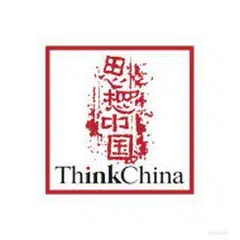Three years of Covid-19 exposes chronic political and social problems in China
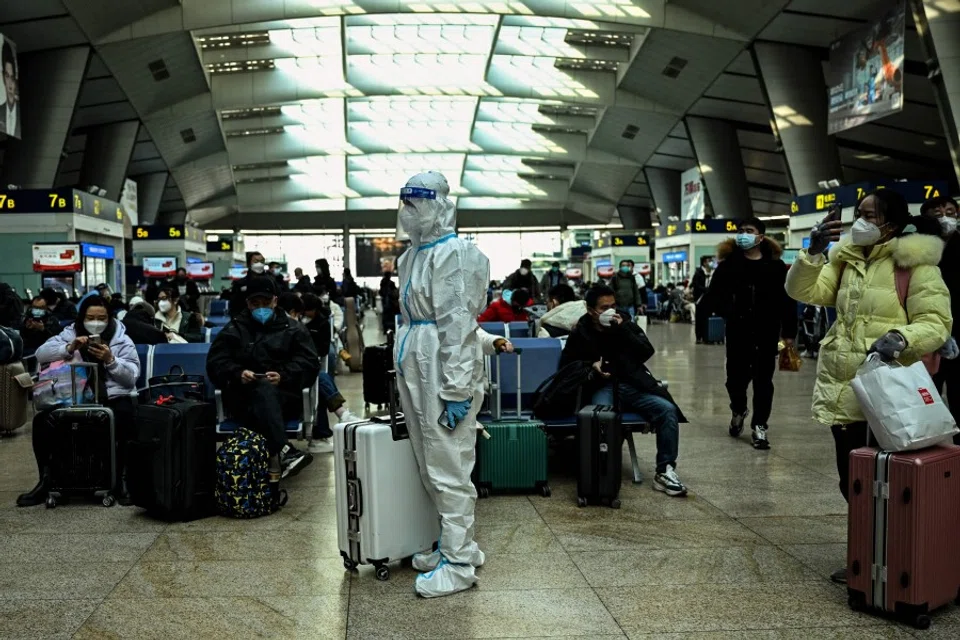
On 7 December 2022, the Chinese State Council's Joint Prevention and Control Mechanism issued a notice saying that China was lifting its dynamic-zero Covid policy and starting to live with the virus.
People were caught off guard as the changes came without warning. As if they were from a previous life, all lockdowns and movement restrictions were no more. Naturally, the Chinese public felt that this was all quite incredulous.
Indeed, months of lockdown have made us anxious, and now we find to our surprise that we can move freely without restrictions - the only thing is the risk of infection.
The policies and statements from experts have changed but the chronic ailments in China's politics and society remain.
Decisions made behind closed doors
Whether strict lockdowns or "lying flat", during this time we have witnessed all sorts of chaos, from the great escapes during the lockdown, sky-high vegetable prices and tough controls, to the shortage of vaccine and fever medicines and squeeze on healthcare following opening up. The policies and statements from experts have changed but the chronic ailments in China's politics and society remain.
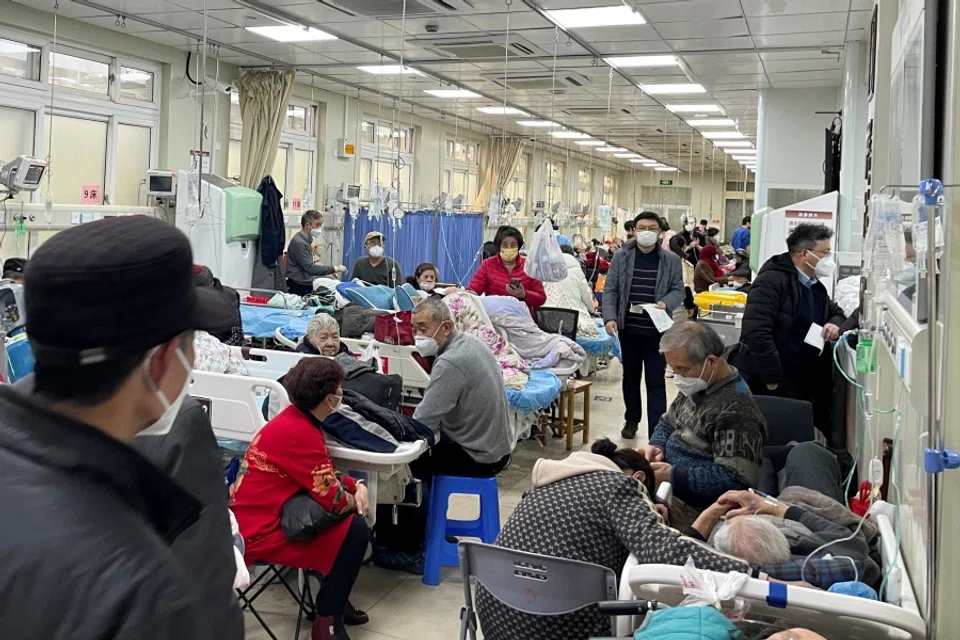
The three years of Covid-19 have shown the closed-door nature of China's policymaking. From zero-Covid to opening up, all decisions were discussed in a little room. Democratic and scientific decision-making was a farce, and public involvement a sham. In those three years, the people's calls fell on deaf ears as policymakers made decisions based on their own thinking.
In the early stages of the outbreak, several academics were able to speak up and exert some influence on decisions. But as the situation evolved, the zero-Covid policy was gradually decided by one person. Rank and file officials had to abide by political interests while the academics were silenced, and those "experts" that remained at the top became mere official mouthpieces, abandoning their principles and changing their narrative according to the official position.
In contrast, developed countries and regions made decisions based on discussions with experts, and various groups in society were able to raise their own interests, even if they were not in line with official decisions. The authorities were also able to adjust decisions in real time based on expert views, rather than being unyielding all the way.
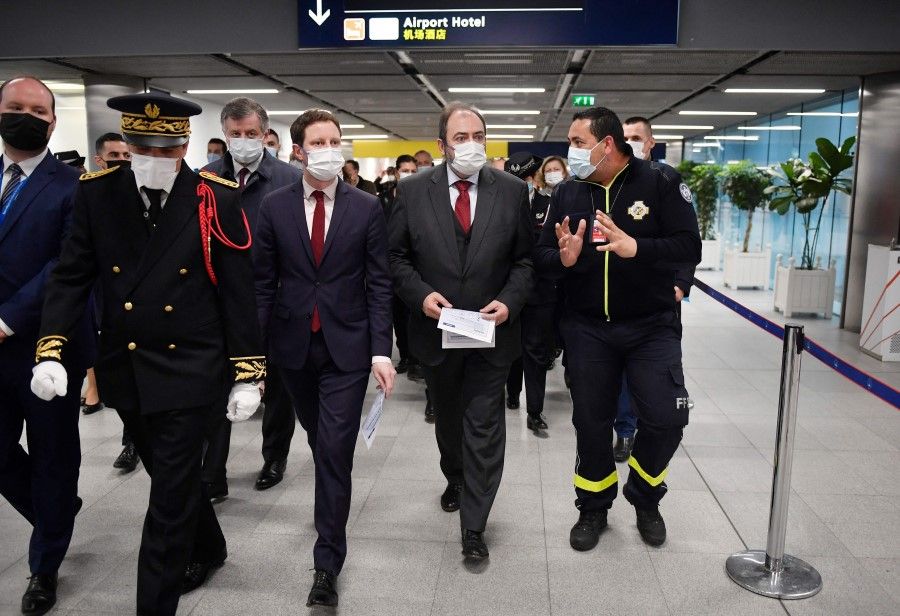
With the decision-making power in the hands of one person, the freedom of discussion of opinions as well as the freedom of academic research are naturally suppressed. Most officials are stuck in a spiral of silence in the decision-making process, as no one dares raise objections out of self-preservation.
The three years of Covid-19 highlighted the weakness of the government's capabilities. From the chaos of the initial outbreak in Wuhan and the subsequent lockdowns, to their inability to secure and distribute everyday and medical supplies, and the squeeze on healthcare after opening up, the government has tried - and utterly failed - to control everything.
And as the government flip-flopped and played the public for fools, its credibility dropped to rock bottom.
Lack of concept of rule of law
During the zero-Covid period, the government prevented the epidemic at all costs for the sake of the so-called political mandate with no regard for science. Instead of increasing vaccination rates and stepping up medical resources, resources were wasted on nonessentials and no preparation was done for the subsequent opening up.
The public did not have stores of basic medicine, factories did not have enough time to ramp up production, and hospitals were unprepared for the high patient volume. In the entire anti-epidemic cycle, the government and its policies lacked a holistic approach, long-term planning and a sensible timeline. Whether dynamic zero or completely opening up, the narrative was constantly changing - even as the authorities were proven wrong, they refused to admit their fault. And as the government flip-flopped and played the public for fools, its credibility dropped to rock bottom.
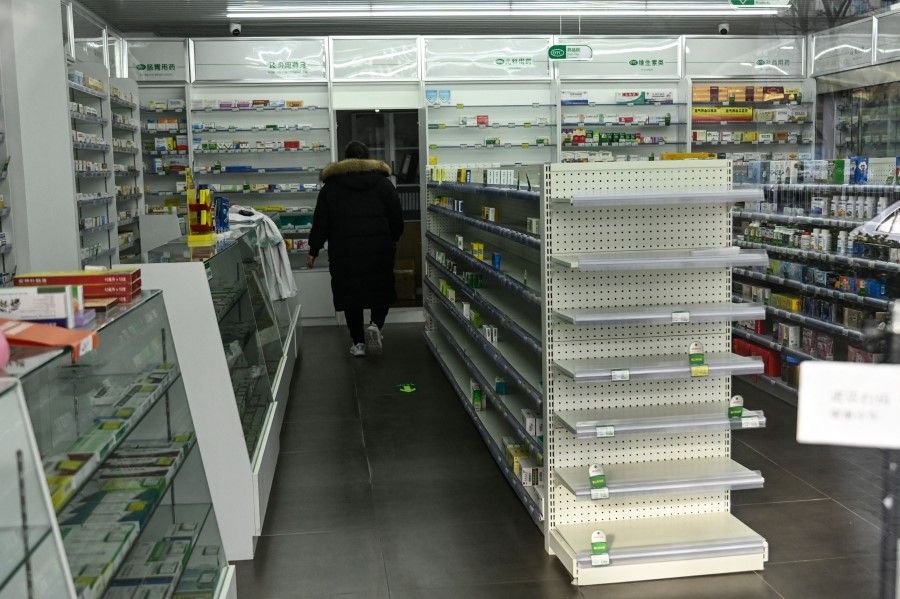
This inevitably illustrates that strong bureaucracy-centric thinking continues to haunt Chinese society. Those in power do not believe that the public is equal to the government, nor that the government should be accountable to the people. Instead, they seek to control and manipulate the people. How does this fit the needs of a modern country?
Would it happen if there were fair courts that can hear public appeals, or if the National People's Congress (NPC) truly represented the people?
The three years of Covid-19 have shown the lack of concept of the rule of law, with social governance in China still running on a "policy is law" model. Since the pandemic began, having policies in place of law, and orders in place of rules, has become the norm of social governance under "extraordinary circumstances".
To a large extent, this is due to the lack of monitoring. Would it happen if there were fair courts that can hear public appeals, or if the National People's Congress (NPC) truly represented the people? Under true rule of law, government power is strictly limited, and all policies are released under the legal framework, rather than doing as one pleases with just an announcement.
Disconnect between central and local governments
The three years of Covid-19 have highlighted the broken relationship between the central and local governments. Various regions implemented their own policies, with each carrying out the central government's policies to varying degrees and at different paces.
When the zero-Covid policy was in place, the central government often failed to provide specific directives to the local governments, and only vaguely mentioned that one-size-fits-all measures should be avoided. This made it difficult for local officials to implement precise measures. As a result, the local governance capabilities and officials' personal perceptions largely determined the Covid-19 policy of a region.
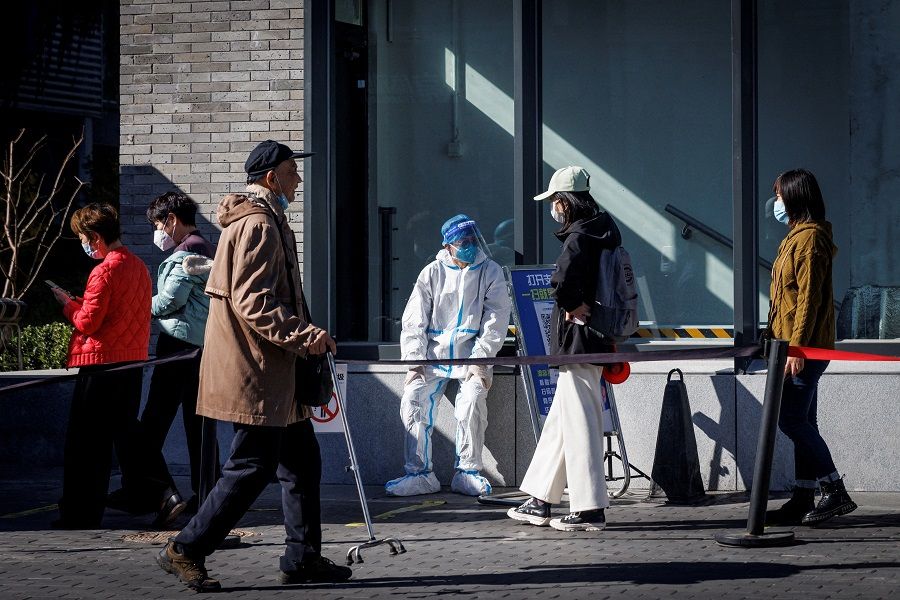
Faced with the conflict between the difficulties of grassroots work and implementing the policies of the central government, local officials must also find a balance, otherwise, there will be chaos, as in the case of Shanghai's lockdown, or they could lose their jobs for failing to control the epidemic. Yet, local officials often valued their careers over people's lives during the zero-Covid phase.
After the announcement to ease Covid-19 restrictions, as the central government did not provide a timeline for reopening, the level of lifting restrictions varied from place to place as regional governments could only feel their way forward according to the local situation. It led to quite a few bizarre phenomena, such as the "universal mask wearing campaign", highlighting the complex relationship between the central and local governments.
In a normal society, self-sacrifice for the collective good deserves recognition, but it should not be used as a tool for propaganda.
Banality of evil
The three years of Covid-19 have highlighted the ills of collectivist propaganda. Grand collective narratives such as "mobilising party members and cadres to resolutely stay on the front line" may appear moving, but behind them are the interests of hundreds of millions of ordinary people.
Stories that are clearly against human nature have become national propaganda, alluding to the inadequacy of the social security system, the hardship of the masses, and the powerlessness and sadness of grassroots cadres under the immense pressure of the country's system.
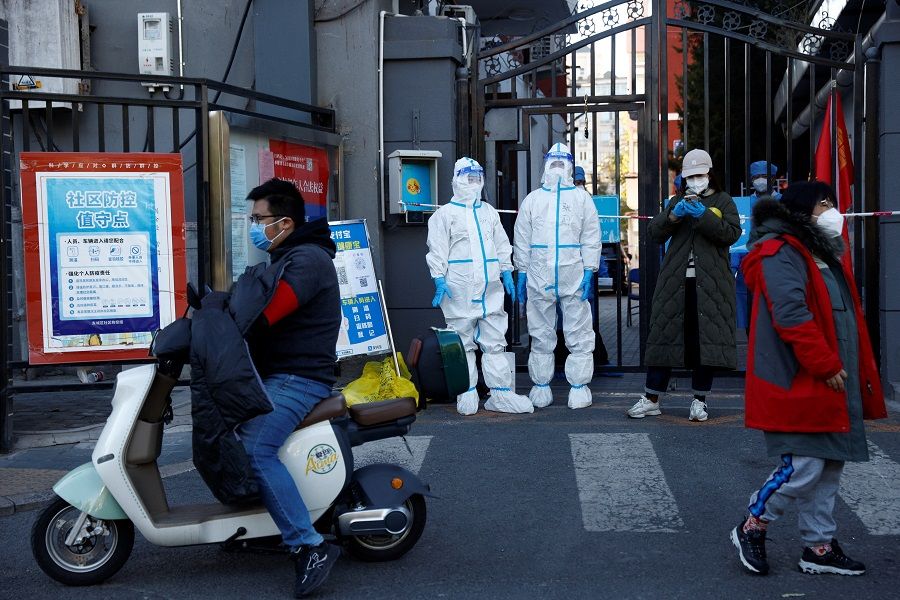
In a normal society, self-sacrifice for the collective good deserves recognition, but it should not be used as a tool for propaganda. What truly needs to be done is to see the shortcomings of society and fix them, instead of seeking refuge in these stories.
Also, in an open society, everyone has their own interests and needs, and no one should be subjected to coercion for the sake of "mobilisation".
This is the product of China's repressive system, and also the triumph of the banality of evil.
The three years of Covid-19 have also highlighted the problems of grassroots work. The banality of evil is spreading even amid the warmth of the grassroots - a guard stopped a woman in labour from entering a hospital; pets were culled by the "Big White" army (people in white suits carrying out anti-epidemic measures); patients who have completed chemotherapy were denied entry into their residential compounds...
While everyone understands that these actions are inhumane, why do they happen over and over again? This is the product of China's repressive system, and also the triumph of the banality of evil.
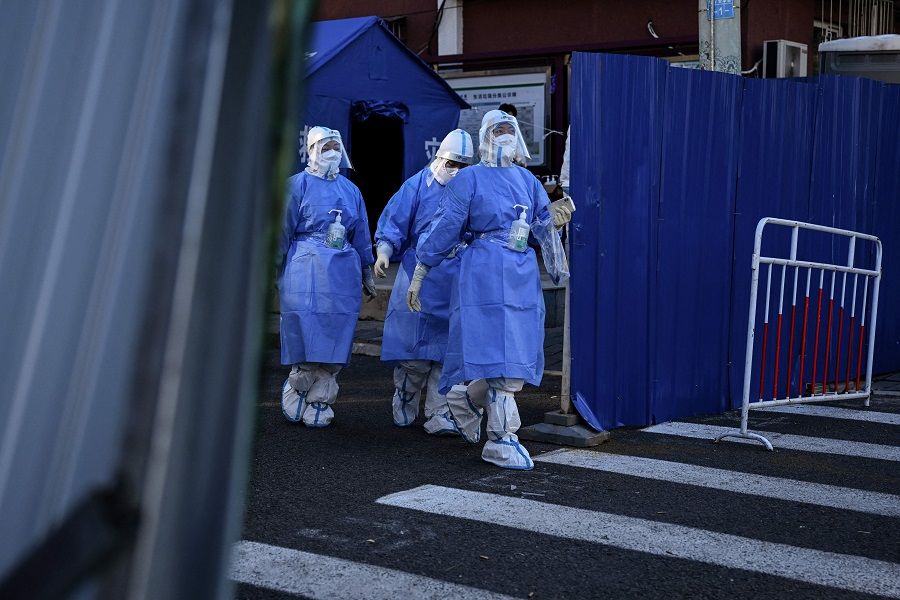
Under the rule of the powerful, the grassroots have lost their conscience and their ability to think. They are also basking in fleeting pleasures, enjoying whatever little power they are enjoying under the special circumstances of implementing Covid-19 controls. Of course they have to savour these rare moments when they can control others and wield power.
Chronic ailments magnified
The three years of Covid-19 have also highlighted the hardship of the masses. The pandemic created new billionaires while displacing even more ordinary people. For the upper class who control power and capital, many are able to live above the law and profit from the pandemic. But the ordinary people could only engage in futile debates over zero Covid and reopening, and are powerless to change anything.
A sense of insecurity has run deep in society since the pandemic, which has been interspersed with episodes of panic buying. There was a mad rush for Chinese medicine Lianhua Qingwen (连花清瘟) in the early stages of the pandemic, for daily necessities whenever a lockdown was rumoured, and for fever medicines after restrictions were eased. These actions were absurd, but do we have a choice?
We look forward to a Chinese society that is open, fair, free and tolerant in the future; one that is open enough to see the suffering of the masses, and tolerant enough to listen to every different voice.
Humans are like ants amid the pandemic. The lack of resources and the inequitable distribution will not be alleviated in the near future, and the channels for ordinary people to change their class and destiny are becoming increasingly narrow.
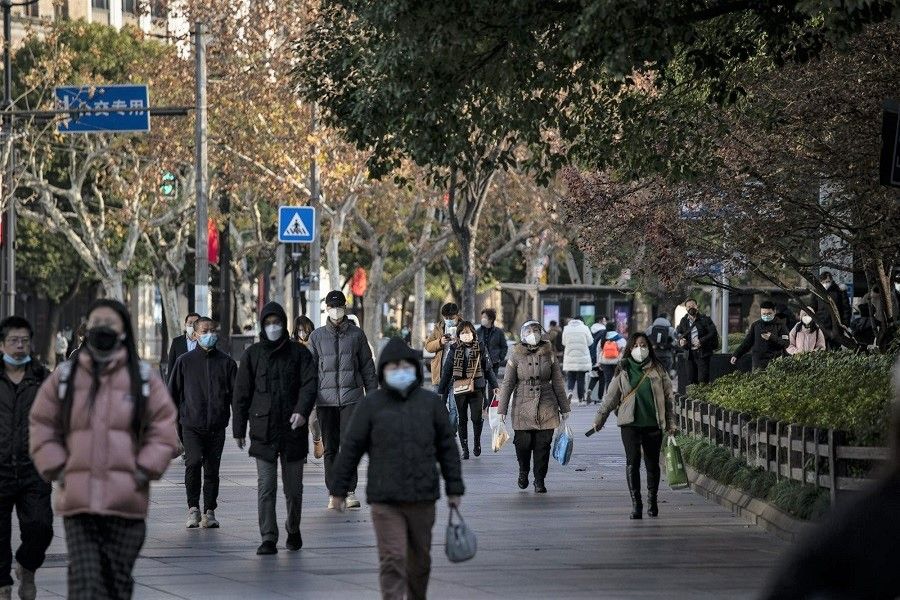
This is a chronic ailment permeating society. It has long existed and the pandemic has magnified it.
How will we evaluate this fight against the pandemic in the future? The memory of the wounds of the past often needs to be healed by the entire society. A society's path to modernisation should be one in which every community can express their demands freely and fairly.
In this process, we need not be afraid to express our opinions or hide our true feelings. All disagreements will be solved openly rather than swept under the rug. We look forward to a Chinese society that is open, fair, free and tolerant in the future; one that is open enough to see the suffering of the masses, and tolerant enough to listen to every different voice.
This article was first published in Lianhe Zaobao as "疫情三年凸显中国政治社会痼疾".
Related: From zero-Covid to living with the virus: Chinese society's adaptability put to the test | Is China ill-prepared for a surge in Covid cases? | The taste of freedom: How I feel emerging from lockdown in Beijing | China is finally easing Covid rules, but not all are happy | Covid protests: A repressed China needs an outlet to return to equilibrium | A Singaporean in China: How Covid brings out the worst in people | New Great Wall of China against Covid-19 built with flesh and blood of the little people
